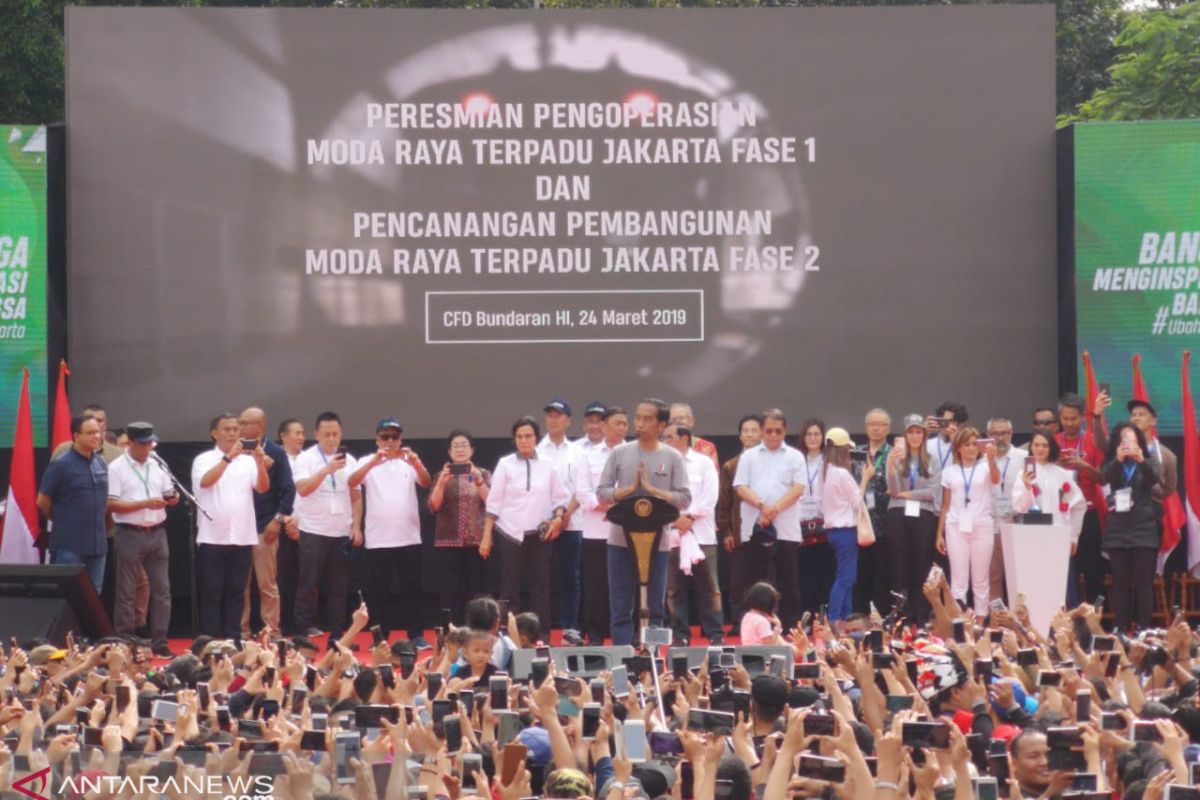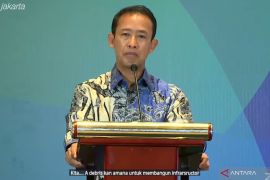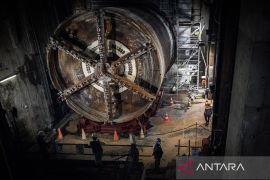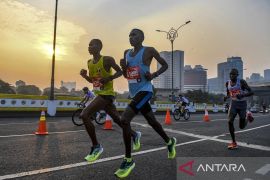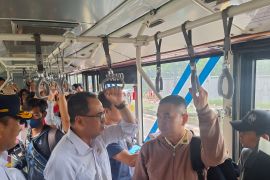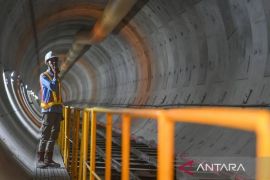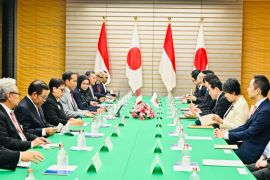The long-delayed MRT Jakarta is expected to ease the notorious traffic congestion in the capital city and suburban areas that has caused annual losses amounting to some Rp65 trillion to Rp100 trillion.
The first stage of the construction work of the MRT project, which was initially mooted in the 1980s, began on October 10, 2013, with a total investment worth Rp16 trillion. It serves a 15.7 km-long route connecting Lebak Bulus in South Jakarta and the Hotel Indonesia (HI) Circle in Central Jakarta in 30 minutes.
The second phase of the MRT construction, connecting the Hotel Indonesia traffic circle to Ancol in North Jakarta, is expected to begin early next year, parallel to the East-West MRT line, connecting Bekasi in West Java and Tangerang in Banten.
Bad traffic jams in the capital city are a major cause of air pollution. Jakarta Governor Anies Baswedan had decided to apply the odd-even policy as a way to limit the number of cars entering Jakarta.
According to data from the World Health Organization (WHO) last year, Jakarta’s air pollution was worse than that of Bangkok, but better than Manila.
In July 2018, Greenpeace Southeast reported that a large percentage of the air pollution in Jakarta came from approximately 3.5 million cars and 14 million motorcycles plying the capital’s roads each day.
In an article entitled “Jakarta’s Silent Killer” issued on October 24, 2017, Greenpeace Southeast Asia wrote that Jakarta already suffered from dangerous levels of air pollution, from traffic, residential emissions and coal fired power.
Based on data of the 2018 World Air Quality Report and interactive world’s most polluted cities ranking compiled by IQAir, Jakarta is one of the most polluted cities in the world.
Greenpeace Southeast Asia, which helped prepare the report, warned that Jakarta risks overtaking Beijing as the most polluted capital city.
“In Southeast Asia: Jakarta and Hanoi are Southeast Asia’s two most polluted cities. With Beijing’s air quality getting better, Jakarta risks overtaking China’s famously polluted capital soon,” Greenpeace Southeast said in a statement in March 5, 2019, quoting the findings of the report.
During the UN Environment Assembly (UNEA) held in Nairobi, Kenya, on March 9, 2019, the UN lauded Beijing for its success in improving the air quality and called on other countries to see Beijing as a model.
Research by the UN Environment and the Beijing Municipal Ecology and the Environment Bureau (BEE) outlines how Beijing’s air quality management program has evolved, and makes recommendations for near, medium, and long-term steps that Beijing can take to maintain its momentum toward clean air.
The report, A Review of 20 years’ Air Pollution Control in Beijing, was compiled by a UN Environment-led team of international and Chinese experts over two years. It covers the year 1998 until the end of 2017.
"This improvement in air quality did not happen by accident. It was the result of an enormous investment of time, resources and political will," said Joice Msuya, Acting Executive Director of the UN Environment.
Understanding Beijing's air pollution story is crucial for any nation, district or municipality that wishes to follow a similar path, as a warning that air pollution will take an estimated seven million lives globally in the next year, while costing the world’s economy nearly 225 billion USD.
“Air pollution steals our livelihoods and our futures, but we can change that. In addition to human lives lost, there’s an estimated global cost of 225 billion dollars in lost labour, and trillions in medical costs. This has enormous impacts on our health and on our wallets. We want this report to make people think about the air we breathe because when we understand the impact of air quality on our lives, we will act to protect what’s most important,” Yeb Sano, Executive Director of Greenpeace South East Asia, said.
Local and national governments can help tackle the effects of air pollution by providing adequate monitoring and reporting infrastructure. What is clear is that the common culprit across the globe is the burning of fossil fuels -- coal, oil and gas -- worsened by the cutting down of forests.
“What we need to see is our leaders thinking seriously about our health and the climate by looking at a fair transition out of fossil fuels, while clearly telling us the level of our air quality, so that steps can be taken to tackle this health and climate crisis,” Sano said.
Editor: Gusti Nur Cahya Aryani
Copyright © ANTARA 2019
